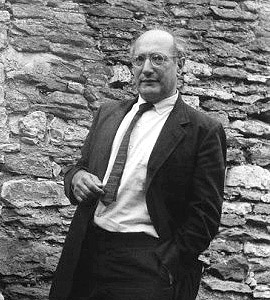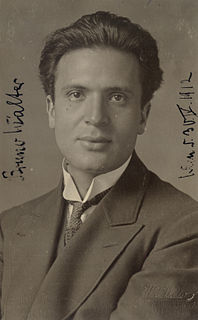A Quote by Matthew Stewart
Like many of the ideas that mattered in the American Revolution, extraterrestrials got their start in antiquity. The Greek philosopher Epicurus speculated that the universe must be infinite, eternal and abounding in 'worlds' just like our own.
Related Quotes
It is known that there are an infinite number of worlds, simply because there is an infinite amount of space for them to be in. However, not every one of them is inhabited. Therefore, there must be a finite number of inhabited worlds. Any finite number divided by infinity is as near to nothing as makes no odds, so the average population of all the planets in the Universe can be said to be zero. From this it follows that the population of the whole Universe is also zero, and that any people you may meet from time to time are merely the products of a deranged imagination.
Thanks to art, instead of seeing one world only, our own, we see that world multiply itself and we have at our disposal as many worlds as there are original artists, worlds more different one from the other than those which revolve in infinite space, worlds which, centuries after the extinction of the fire from which their light first emanated, whether it is called Rembrandt or Vermeer, send us still each one its special radiance.
Revolution is everywhere, in everything. It is infinite. There is no final revolution, no final number. The social revolution is only one of an infinite number of numbers: the law of revolution is not a social law, but an immeasurably greater one. It is a cosmic, universal law - like the laws of the conservation of energy and of the dissipation of energy (entropy).
One could say that what differentiates ancient from modern philosophy is the fact that, in ancient philosophy, it was not only Chrysippus or Epicurus who, just because they had developed a philosophical discourse, were considered philosophers. Rather, every person who lived according to the precepts of Chrysippus or Epicurus was every bit as much a philosopher as they.
Faced with a world of "modern ideas" which would like to banish everyone into a corner and a "specialty," a philosopher, if there could be a philosopher these days, would be compelled to establish the greatness of mankind, the idea of "greatness," on the basis of his own particular extensive range and multiplicity, his own totality in the midst of diversity.
Giving importance to what we think because we thought it, taking our own selves not only (to quote the Greek philosopher) as the measure of all things but as their norm or standard, we create in ourselves, if not an interpretation, at least a criticism of the universe, which we don't even know and therefore cannot criticize. The giddiest, most weak-minded of us then promote that criticism to an interpretation that's superimposed, like a hallucination; induced rather than deduced. It's a hallucination in the strict sense, being an illusion based on something only dimly seen.
I always encourage people to start in their own personal universe, because sometimes we as parents start thinking about the big picture. How do I change what's happening in my entire school? And how do I do it in my community? And then you get overwhelmed and it's just like, "Forget it, I'll just stay here in my kitchen and wait." But, start small.
We must not falter nor weary in well-doing. We must lengthen our stride. Not only is our own eternal welfare at stake, but also the eternal welfare of many of our brothers and sisters who are not now members of this, the true Church. I thrill to the words of the Prophet Joseph Smith in a letter that he sent to the Church from Nauvoo on September 6, 1842: 'Shall we not go on in so great a cause? Go forward. … Courage … and on, on to the victory!







































